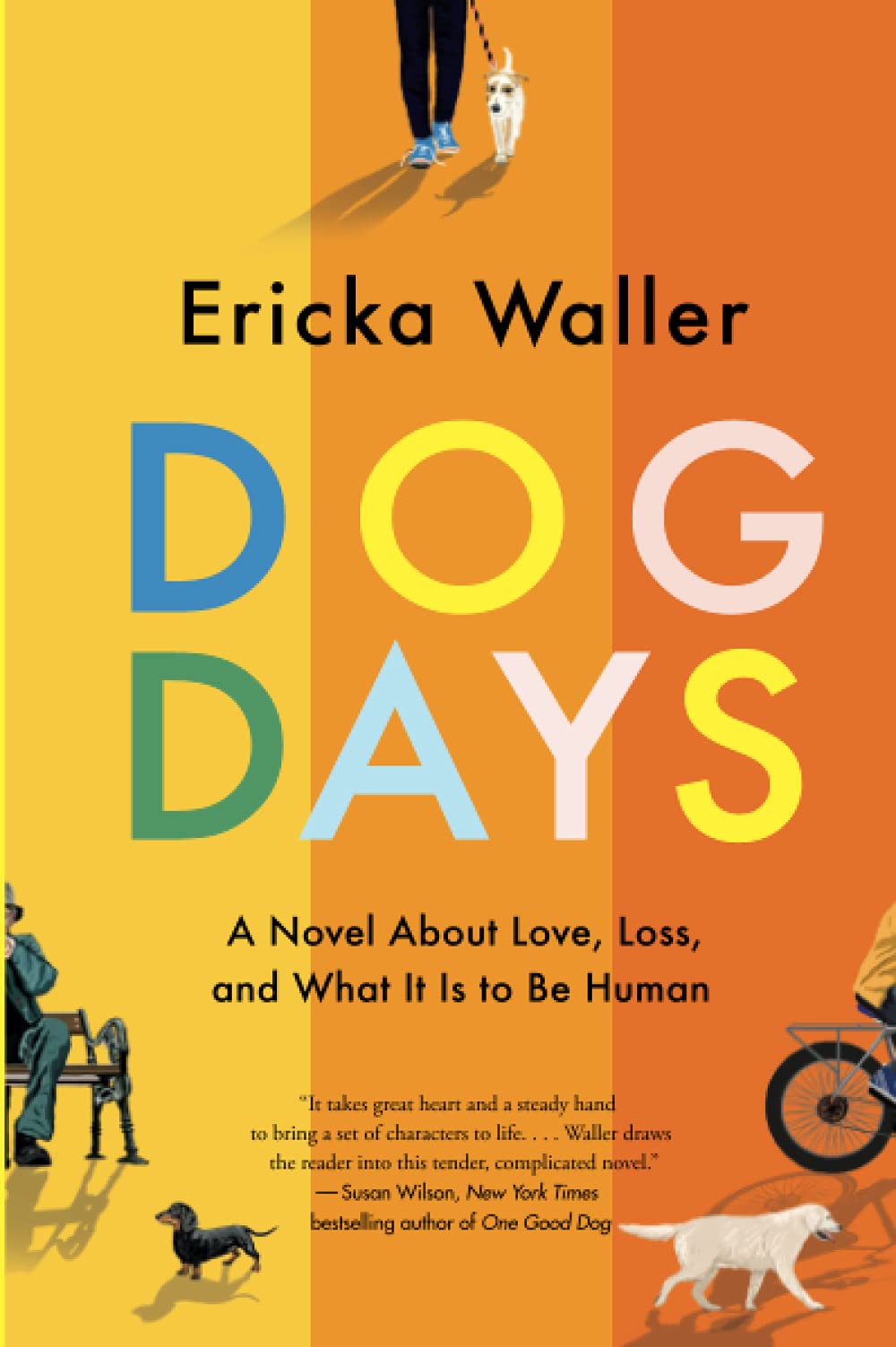Dog Days, by Ericka Waller
Sometimes you really need to read a book that is complex, absorbing and real, but is not gritty, tortured, explosive, gut-wrenching, convoluted or saccharinely sweet, where the drama feels intuitive, not bled from dire circumstances. Erika Waller’s debut novel Dog Days fits that bill nicely.

It’s also nice that while dogs are a constant thread that helps to hold this novel together, they are not saviors or catalysts – they simply are loving, constant companions; touchstones rather than arsenal being shot from a literary pellet gun.
In the village of Rottingdean, in Brighton, we meet three very different people, struggling in three very different ways. George, a foul-mouthed, cantankerous curmudgeon, is having to face the sudden death of his wife of over 40 years, a woman whom everyone loved, who loved almost everyone, who loved him and took care of him. George is mad at all the people who keep bothering him, mad at the world in general, and mad at Ellen for dying. He’s also mad that in one of her few acts of defiance she brought home a little wiener dog she named Poppy, despite his telling her he didn’t want a dog. Now Ellen is gone and Poppy is still there, pissing and sh**ting on everything, and barking so the neighbors complain – like he cares.
Then there is Dan, a counsellor (American readers, think therapist) who is almost painfully shy and lacking any kind of internal confidence, sliding deeper into obsessive compulsive behavior. But despite his own doubt, he is good at his job (or so he is told), and has a strong relationship with his gregarious and likeable cousin, Luke; the two train and run marathons together. Plus Dan has a constant companion in the loveable, good natured yellow lab Fitz, who keeps him grounded and active. But then one day a client walks into Dan’s office who threatens to turn his world upside-down, and to expose truths he’s been hiding his entire life.
And finally there is Lizzie, who has landed in a shelter for battered women with her young son, Lenny. Lizzie has always been emotionally distant but with an encyclopedic recall of tidbits of knowledge that she uses as a buffer to both impress those around her and keep them at arm’s length. She had been a successful primary school teacher before her world fell apart, before she took Lenny and fled. Now he is her whole world, who blissfully trusts her in their uprooting. Right now, what she needs is a safe place to cocoon herself and her son, where all that is asked of her is participation in a shared list of mindless chores, including walking the shelter owners older, pudgy Jack Russell terrier, Maud.
Watching these three well drawn characters internally navigate their struggles is where this novel unfolds. Author Ericka Waller masterfully gives each of them defining voices, and in each of them we are able to recognize someone we know, and occasionally the person we are. This goes for secondary characters, as well, such as Betty, the head of the neighborhood association who comes to check up on George’s barking dog issue and ends up being both a thorn in his side and the kick in the ass he needs, or Atticus, the client of Dan’s who is everything Dan is not – dashing, worldly, full of insouciance and flair – but damaged and deflecting, challenging Dan to find out why in a game that seems both superfluous and dangerous. For Lizzie, there are the other women in the shelter, women that she shies away from and yet are akin to her in their shared pain.
There are overlaps in these characters, yes, but mainly that interaction is glancing; the point is not how these three characters relate, but how each reveal their struggles, and how they are changed in part due to life never remaining constant – and in part due to the need to walk the dog.
The dogs in and of themselves are also wonderful; not only Poppy, Fitz and Maud, but Luke’s galumphing wolfhound, Wolfie, and Betty’s skittish greyhound rescue, Lucky. The one place they all have in common is the Beacon, a park by the sea where the dogs can run while their owners snack, ruminate, interact or not, a point of familiarity in disparate worlds.
I found this book to be a badly needed sojourn away from society’s demands for political empathy and civil discord into the very personal lives of achingly rendered individuals, a reminder that each of us struggles beneath the façade that we present to the world. Yes, life may be hard, but a good book – and a good dog – can make life easier. Dog Days is definitely one of those books.
Now, excuse me while I head out to take my own beloved dog for a walk.
—Sharon Browning

